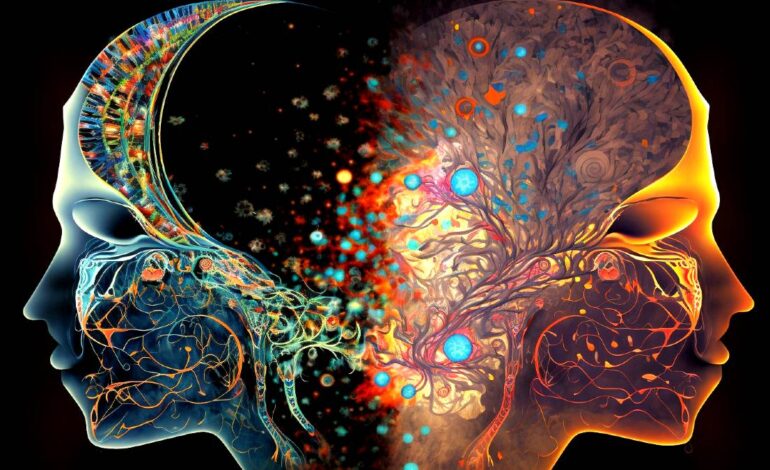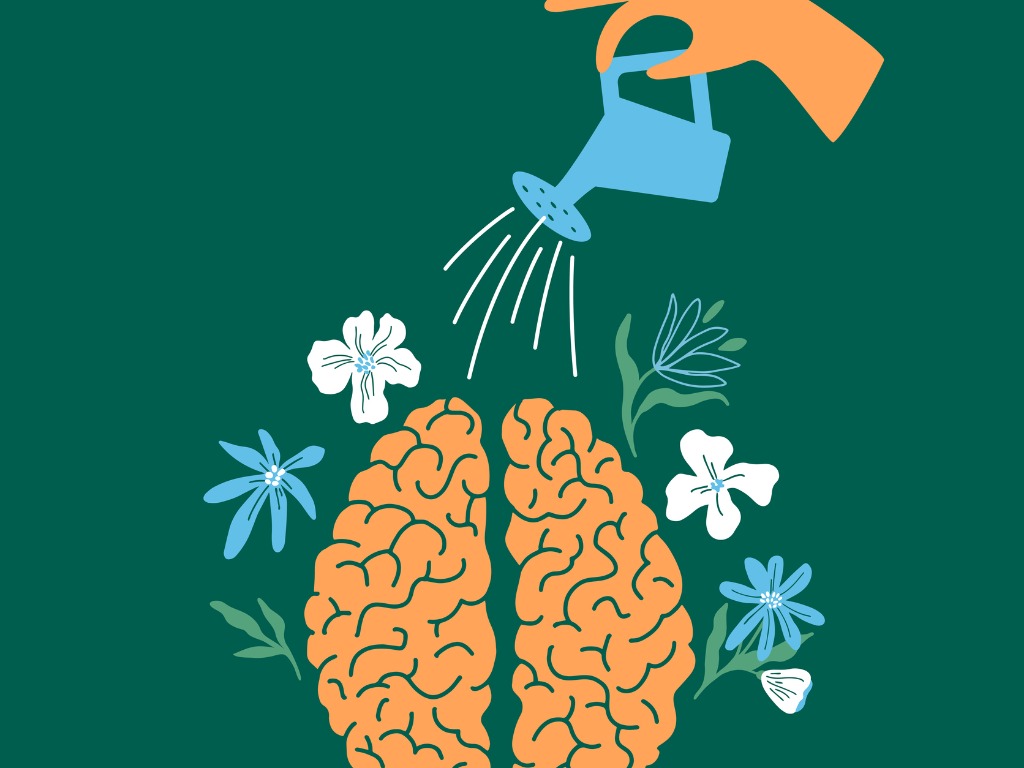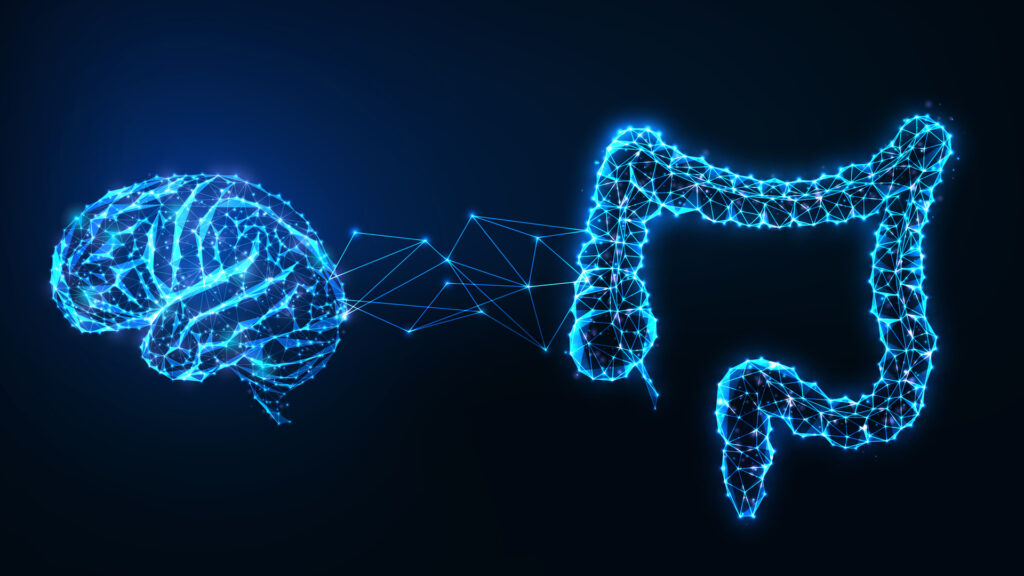
In the hustle and bustle of our daily lives, it’s easy to compartmentalize our physical health and mental well-being as two separate entities. However, a growing body of research is shedding light on the intricate and profound connection between the mind and body. The symbiotic relationship between our mental and physical health is not just a matter of coincidence but rather a complex interplay that significantly influences our overall well-being.
The Neurological Tango
If you’ve ever felt like your emotions are in control of you, you’re right. At the heart of the mind-body connection lies a dance of neurotransmitters and hormones. The brain, acting as the command center, sends signals throughout the body, influencing everything from heart rate to immune system function. Serotonin, often dubbed the “feel-good” neurotransmitter, not only regulates mood but also plays a crucial role in digestion. On the flip side, the stress hormone cortisol, when chronically elevated, can wreak havoc on both mental and physical health.
Neurotransmitters are chemicals that relay messages between neurons (nerve cells). When neurotransmitters bind to receptors on nerve cells or other cells in our bodies (such as muscle cells), they cause those cells to perform certain functions or respond to outside stimuli. For example, when your brain receives information from your senses about how hot or cold something feels on your skin—like someone putting an ice cube on your arm—it sends out an electrical impulse through your nerves that carries this message to every cell in your body so they all know what’s going on!
Mind Over Matter

If you’ve ever heard the phrase “mind over matter,” you know it’s usually used as a cliché. But it’s not just a saying—the power of positive thinking really can change your life. Studies have shown that a positive mindset can contribute to lower stress levels, improved immune function, and even faster recovery from illness. The placebo effect, where patients experience real physiological changes in response to a dummy treatment, further underscores the influence of the mind on the body.
So what does this mean for you? It means that if you’re feeling down or stressed out, it’s time to get back into a positive mindset! Take some time every day for yourself; do something fun; take up a hobby or learn something new. If you’re feeling sick, remember that there are no quick fixes—it takes time for our bodies to heal themselves. But if we stay positive and look after ourselves with good nutrition and exercise, we can help our bodies heal faster!
Stress: The Silent Saboteur
In the fast-paced modern world, stress has become an omnipresent force, capable of disrupting the delicate equilibrium of the mind-body connection. Chronic stress has been linked to a myriad of health issues, including cardiovascular disease, digestive problems, and mental health disorders. Understanding how stress impacts both the mind and body is crucial for developing effective strategies to mitigate its negative effects.
One of the most important aspects of managing stress is learning how to identify it. As with many other mental health disorders, recognizing when you are experiencing symptoms of stress can be difficult because you may not even know what those symptoms are. One way to identify signs and symptoms is by observing your own behavior over time; if you find that certain behaviors have become more frequent or intense since starting college or entering into a new stage in life (such as moving away from home) then chances are that these behaviors could be attributed to stress rather than simply being normal behavior for your personality type or personality style.
The Gut-Brain Axis

The gut-brain axis is a system of communication between the digestive tract and the brain, consisting of a complex network of neurons and hormones that regulate mood, behavior, and cognition. Recent research has unveiled the fascinating connection between the gut and the brain, known as the gut-brain axis. The trillions of microbes residing in our digestive system play a pivotal role in influencing mental health, affecting everything from mood to cognition.
The intestinal lining is home to more than 100 trillion microorganisms—more than 10 times as many cells as there are in your body! These bacteria have an enormous impact on how you feel: they communicate directly with your brain by releasing neurotransmitters like serotonin and dopamine, which can affect your mood; they also produce short-chain fatty acids that help regulate metabolism; they aid in digestion by breaking down food into nutrients that can be absorbed into the bloodstream; they can even prevent disease by crowding out pathogens like E coli or Salmonella. This revelation underscores the importance of maintaining a healthy gut through proper nutrition and lifestyle choices.
The mind-body connection is a profound and intricate tapestry that weaves together our mental and physical well-being. Understanding this relationship empowers us to take a more holistic approach to health, acknowledging that true wellness encompasses both mind and body. As we navigate the complexities of life, let’s strive for harmony within, fostering a synergy that allows us to flourish mentally, physically, and holistically.
RUCHI RATHOR Founder & CEO
Payomatix Technologies Pvt. Ltd.
FOUNDER AND INVESTOR | PAYMENTS PROCESSING EXPERT | MERCHANT ACCOUNT SOLUTIONS | WHITE LABELLED PAYMENT GATEWAY | Dreamer, Creator, Achiever, Constantly Evolving
Website Ruchi Rathor: https://ruchirathor.com
Website Healing Heart https://thehealingheart.me/
Instagram https://www.instagram.com/_ruchirathor_/
LinkedIn https://www.linkedin.com/in/ruchirathor12/
Facebook https://www.facebook.com/ruchi.rathor.magnificient
Tumblr https://www.tumblr.com/blog/ruchirathor-thehealingheart
Medium https://medium.com/@ruchirathor_23436









